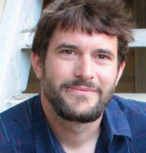DNA reveals the past and future of coral reefs
New DNA techniques are being used to understand how coral reacted to the end of the last ice age in order to better predict how they will cope with current changes to the climate. James Cook Univer

From 2005 to 2022, the main node of the ARC Centre of Excellence for Coral Reef Studies was headquartered at James Cook University in Townsville, Queensland (Australia)








Abstract: Marine reserves are an important tool for biodiversity conservation, but they are often relied upon also to benefit fisheries, particularly in tropical coastal areas. However, the fishery implications of decisions on the size, location and combined coverage of reserves within a network are generally unspecified. In this seminar, I will present findings from an ongoing ARC Linkage project, which aims to advance marine reserve network design theory for fisheries by identifying circumstances under which the long-term productivity on fishing grounds is either increased or at least not diminished. Most of this work is model-based and focused on benefiting fisheries that are diverse, unassessed and otherwise unregulated. Our findings suggest that realistic reserve network designs (10-30% protection of fished habitat based on reserves with a mean diameter of 1-10 km) should benefit the long-term productivity of almost any such complex fishery. Reliable information on (1) the scale of adult movements and larval dispersal, and on (2) environmental heterogeneity for systematic reserve placement, can be important to optimize reserve targets within and beyond these ranges. Without such information, 20-30% protection of fished habitat based on reserves with a maximum diameter of 15 km should help ensure that long-term fisheries productivity is not diminished even if overfishing is not yet a problem, while providing a much higher potential for efficient species protection and fisheries rebuilding than 10-20% protection based on small reserves whenever fish populations are already substantially depleted. This generic finding is informed by empirical data that include previously unavailable measurements of fish movements as both adults and larvae on coral reefs. Thus, our project encourages a more aggressive than currently targeted use of reserves where both biodiversity conservation and higher fisheries productivity are most urgently needed.
Bio: Nils is a postdoc at the University of Queensland. He is broadly interested in marine ecology, fisheries and conservation science, focusing primarily on fish population dynamics and spatial fisheries management. Nils has been using a range of methods, including field surveys, laboratory experiments, population genetics and modelling, to address research questions in these fields. His current work in Professor Peter Mumby’s Marine Spatial Ecology Lab aims to support decisions on marine reserve network designs that can benefit both conservation and fisheries in the Coral Triangle region, specifically Indonesia and the Philippines.
New DNA techniques are being used to understand how coral reacted to the end of the last ice age in order to better predict how they will cope with current changes to the climate. James Cook Univer
A new study on the effects of climate change in five tropical countries has found fisheries are in more trouble than agriculture, and poor people are in the most danger. Distinguished Profess
James Cook University researchers have found brightly coloured fish are becoming increasingly rare as coral declines, with the phenomenon likely to get worse in the future. Christopher Hemingson, a
Researchers working with stakeholders in the Great Barrier Reef region have come up with ideas on how groups responsible for looking after the reef can operate more effectively when the next bleaching
Abstract: As marine species adapt to climate change, their heat tolerance will likely be under strong selection. Individual variation in heat tolerance and its heritability underpin the potential fo
Abstract: The Reef Ecology Lab in KAUST’s Red Sea Research Center explores many aspects of movement ecology of marine organisms, ranging from adult migrations to intergenerational larval dispersal
Abstract: Macroalgal meadows are a prominent, yet often maligned component of the tropical seascape. Our work at Ningaloo reef in WA demonstrate that canopy forming macroalgae provide habitat for ad
Abstract: Sharks are generally perceived as strong and fearsome animals. With fossils dating back at least 420 million years, sharks are not only majestic top predators but they also outlived dinosa
Abstract: Connectivity plays a vital role in many ecosystems through its effects on fundamental ecological and evolutionary processes. Its consequences for populations and metapopulations have been
Abstract: Evolution of many eukaryotic organisms is affected by interactions with microbes. Microbial symbioses can ultimately reflect host’s diet, habitat range, and even body shape. However, how
Abstract: The past few years have seen unprecedented coral bleaching and mortality on the Great Barrier Reef (GBR) but the consequences of this on biodiversity are not yet known. This talk will expl